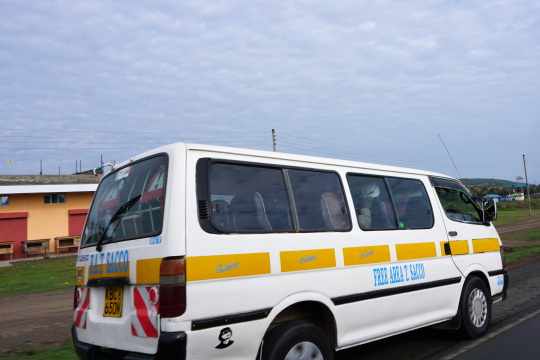The impacts of climate change differ greatly between and within countries. Policies for adaptation and low-carbon pathways must consider how different groups in society are affected and ensure that no one is left behind. This is easier said than done. From local to global levels, EfD researchers are investigating facts and perceptions to help overcome the hurdles to much-needed transition policies.
Thousands of informal transportation workers in Nairobi, Kenya, risk losing their jobs when the planned Bus Rapid Transport system is introduced. The system that will increase the efficiency of the public transportation system while reducing congestion and emissions has many winners. However, current policies lack a clear mechanism to deal with those who, like drivers and conductors of minibuses/ “Matatus”, stand to lose from the transition.
“Researchers can play an important role in identifying how vulnerable groups are affected by transition policies and in finding solutions for making the policies acceptable and inclusive,” says Richard Mulwa, EfD Kenya.
Richard Mulwa co-authored the report Incorporating Just Transitions in Kenya’s Low-Carbon Economy Development Path, commissioned by the NGO Climate Strategies. Challenges and recommendations for a Just Transition were highlighted for seven economic sectors, including transportation and urbanization. The report was launched in April 2023 in a workshop in Nairobi with participation from the Matatu Owners’ Association, the State Department of Transport, the Kenya Association of Waste Recyclers, and many more.
Include reskilling initiatives
“A Just Transition for the transport sector must pay close attention to the informal workers, take measures to increase access to formal employment, include reskilling initiatives, and give special attention to the specific needs of women workers”, says Richard Mulwa.
Researchers should focus more on questions of political economy and the link between public support and political acceptance of climate policies. This was one of the conclusions coming out of a major EfD project finalized in 2023 (see also page 33 on High-Level Research Agenda for inclusive Low-Carbon Transitions for Sustainable Development in the Global South).
Policy acceptance can increase
Previous research has shown that acceptance of climate policies, for instance, a tax on fossil fuels increases if the resources collected are used for well-defined purposes. However, hardly any research has been done on the social acceptance of carbon policies in East Africa. Michael Ndwiga, EfD Kenya, was part of an international group from EfD who wanted to change this. An online survey was made with more than 4500 people in Ethiopia, Rwanda, Uganda, Kenya, and Tanzania.
“We found that people in East Africa are roughly as skeptical of climate policies such as taxes as people in the Global North. Only about 25% state they would support a tax on fossil fuels. But if the money collected was recycled back to social programs, more than two-thirds of respondents were in favor of such a policy. While these findings are only indicative, surveys like this might reduce policymakers' reluctance to introduce effective and just policies,” says Michael Ndwiga, researcher at EfD Kenya and co-author of a paper published in Climate Policy titled Public acceptability of policy instruments for reducing fossil fuel consumption in East Africa.


